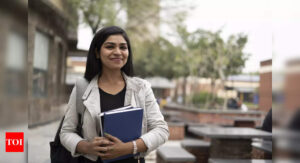MK Stalin appeals to PM Modi to increase income limit for SC/ST and OBC student scholarships

Chennai, Tamil Nadu Chief Minister M.K. Stalin has called on Prime Minister Narendra Modi to increase the family income cap for post-matric and pre-matric scholarships for SC/ST and OBC students from the current Rs 2.5 lakh to Rs 8 lakh.
In a letter to the Prime Minister on December 10, Stalin emphasized the pressing need for this revision, aligning the income ceiling with that of the Economically Weaker Section (EWS), which was recently raised to Rs 8 lakh.
He further noted that comparable schemes, such as the National Overseas Scholarship and the Top-Class Education Scheme for SC/ST students, have already implemented the Rs 8 lakh threshold, significantly benefiting underprivileged students.
Stalin stated in the letter: “I request your favourable intervention in this matter to consider and increase the annual family income ceiling for post-matric and pre-matric scholarships for SC/ST/OBC students from Rs 2.5 lakh to Rs 8 lakh at the earliest.”
The Chief Minister also cited the All India Survey on Higher Education (AISHE) report, which shows a significantly lower Gross Enrolment Ratio (GER) for SC/ST students and certain OBC groups compared to the general population.
He underscored the stark disparities in enrolment figures and stressed the importance of facilitating higher education opportunities for members of these communities.
Stalin emphasised that providing post-matric and pre-matric scholarships would greatly enhance the enrolment of SC/ST students in higher education institutions. In our view, increasing the annual income ceiling for these scholarships from Rs 2.5 lakh to Rs 8 lakh on par with EWS criteria is not only essential but also fully justified.
This move, he argued, is critical to ensuring equitable access to education for historically disadvantaged groups.



